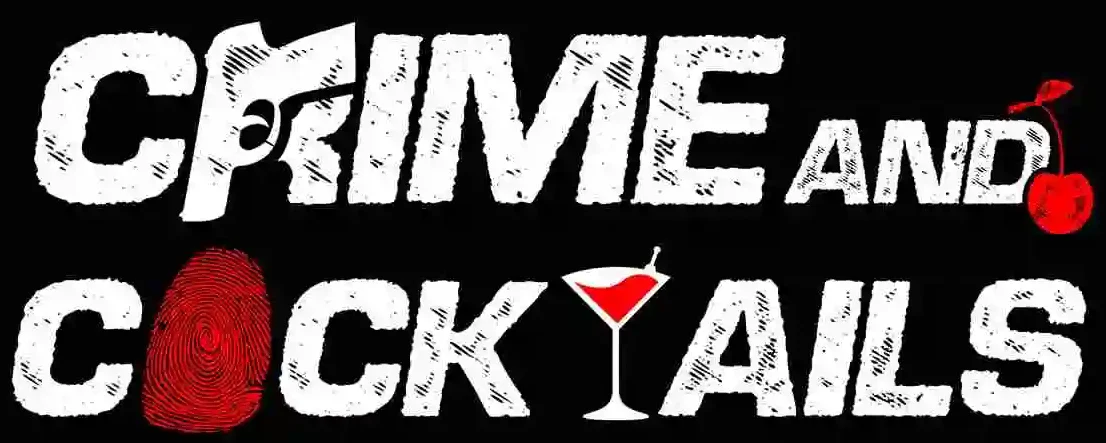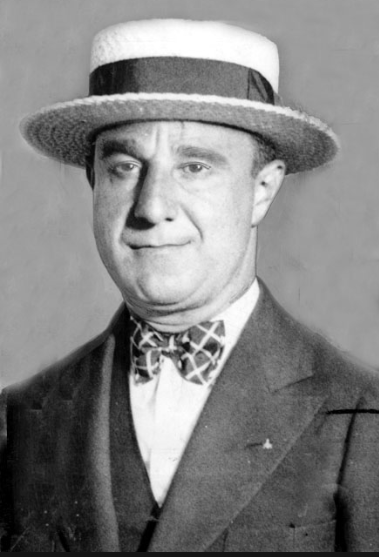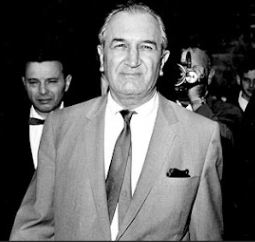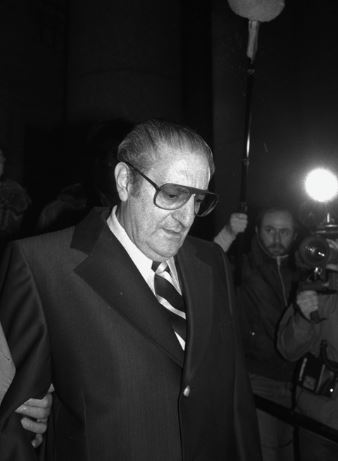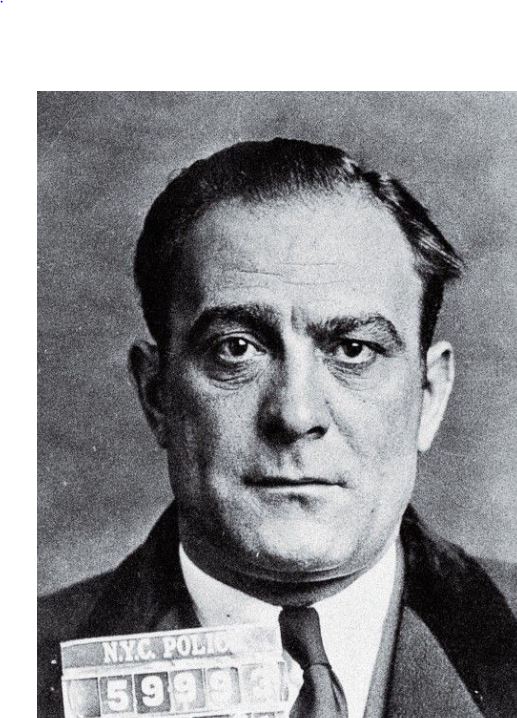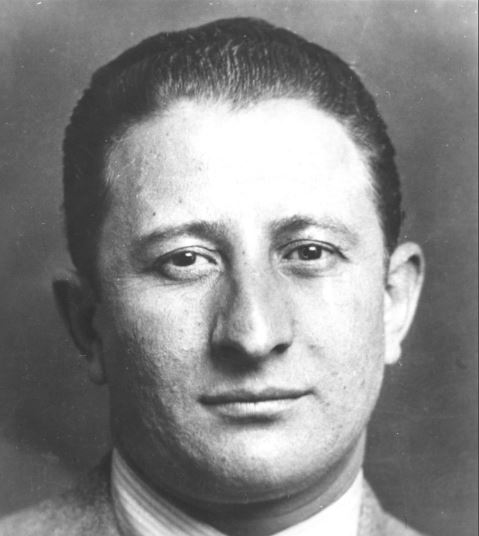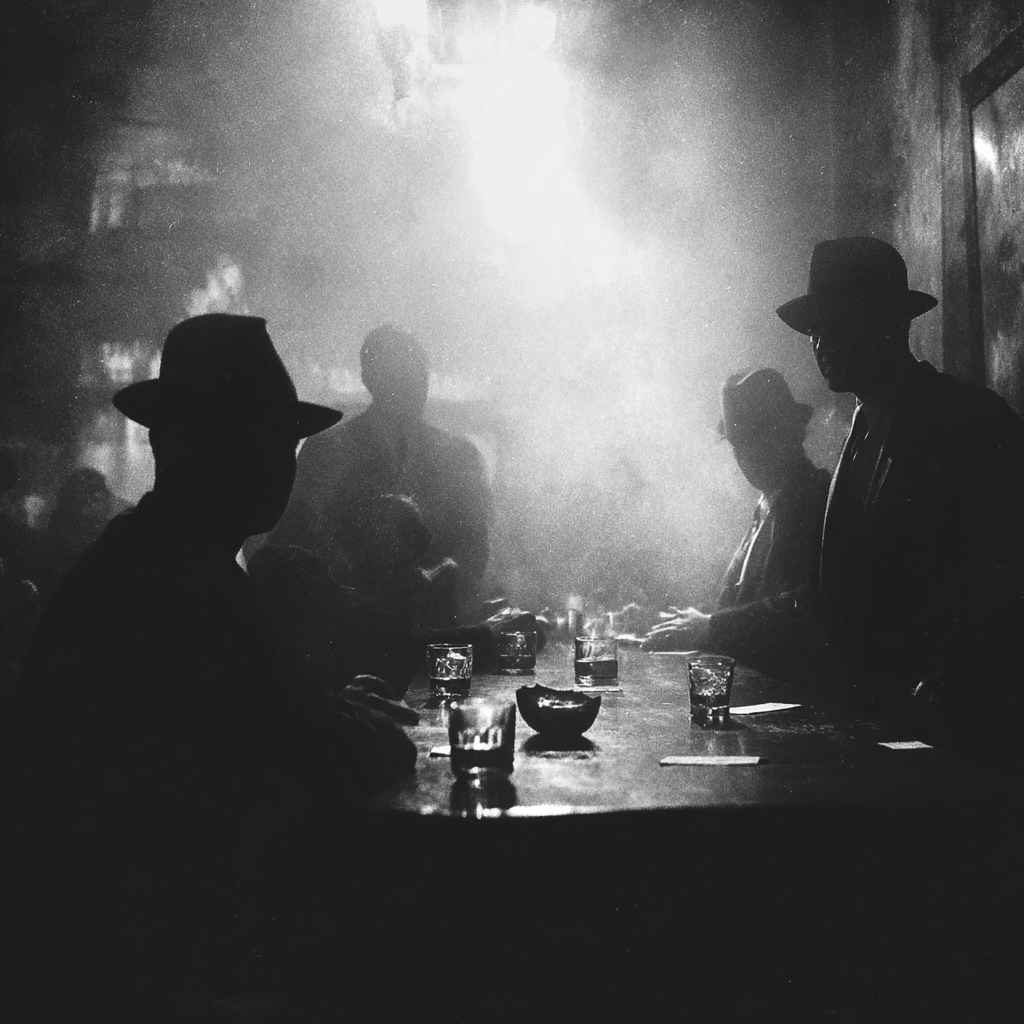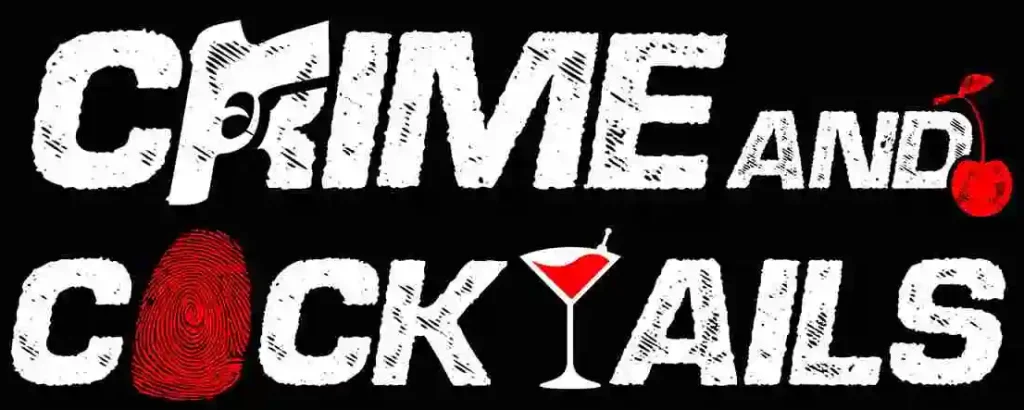Max “Boo Boo” Hoff was no ordinary gangster. Born in South Philadelphia in the early 1890s to poor Russian-Jewish immigrants, Hoff abandoned school in favor of work at a cigar store—where gambling was part of the service. His smooth charm earned him a raise from $12 to $15 a week, but ambition pushed him further. By 1917, he’d launched a gambling operation in what is now Society Hill—a poolroom on the first floor, dice games upstairs, and the sound of hidden transactions everywhere.
When Prohibition struck in 1919, Boo Boo seized the moment. He constructed a powerful bootlegging syndicate that would eventually net him an estimated $5 million a year, a sum in the late 1920s equivalent to $50–60 million today.
His empire ran like a well-oiled machine: 175 phones in his office and a weekly payroll that kept the gears moving, while industrial alcohol was diverted through front operations and laundered through financial rings.
The Veins of Power: Money, Influence, and Invisible Hands
To conceal his illegal network, Hoff operated through facades like The Franklin Mortgage & Investment Company and collaborated with the Union Bank & Trust Company to launder millions through fake accounts, often under the names of the dead or nonexistent people.
Massive loads of industrial alcohol were shipped from the Publicker plant disguised as “tar” or “asphaltum” and later rebottled into innocuous labels like “hair oil” or “perfume.” The scale was staggering: over just three months, 350,000 gallons were funneled through these channels.
The product flowed to speakeasies, brothels, and restaurants under cover of police protection—paid in bribes totaling roughly $2 million a year, a sum that equates to over $32 million today. Plainly, corruption had made thieves of those sworn to serve.
The Breaking Point: Murder, Chaos, and a Grand Jury on Edge
In early August 1928, a murder would ignite a firestorm. Hugh “Hughie” McLoon, a 26-year-old former bat boy for the Philadelphia Athletics and nightlife figure, was gunned down in a blaze of gang violence. Within six days, his death triggered the convening of the Special August Grand Jury, a body assembled to confront the rot embedded in the city’s institutions.
The jury’s investigation, spanning seven months across 1928 and into 1929, read like a dirge for Philadelphia. It summoned 748 witnesses, including Hoff himself—who appeared on the stand eight times, always in a different outfit, his identity as elusive as the evidence that might incriminate him.
Hoff, ever the enigma, denied any connection to the liquor trade, even as authorities including DA John Monaghan dubbed him the unofficial “King of Philadelphia’s Bootleggers.” His success rested on legal invisibility—he had reportedly “scrupulously avoided signing any documents connected to the undercover operations.”
Law in Tatters: Grafts, Guns, and Ghost Accounts
The Grand Jury’s findings were damning—and cinematic. It exposed Hoff’s financial web, the “hair oil” trickery, and his money-laundering scheme; it found that 87 police officers—including nearly half of precinct commanders, several inspectors, and detectives—couldn’t account for their sudden wealth. Many were fired or forced to resign.
The jury declared 138 officers “unfit for service.” It even touched on firearms trafficking—from the Military Sales Company, owner Edward S. Goldberg admitted selling submachine guns and bullet-proof vests to Hoff. Police raided his shop to discover approximately 450 machine guns in the basement.
Barges carrying contraband liqueurs and champagne—escorted through the Delaware River—were traced back to Hoff’s syndicate, tallying $500,000 in value then (over $5 million now). Yet, despite the wealth of evidence, the detectives and prosecutors failed to indict him.
A City That Let Crime Thrive—and a Titan Unscathed
Philadelphia, during Prohibition, had become a swill of vice and impunity. As one Marine remarked, the city was a “cesspool”—its law enforcement so compromised that reformers like Gen. Smedley Butler were hired to clean house in 1924, only to find entrenched corruption stymied by political inertia.
When the grand jury finally handed down its report, the verdict was blunt: the underworld architecture remained intact. The jury implored citizens to remain vigilant, to reclaim their city from seeping vice. But Prohibition’s unpopularity, economic desperation of the Depression, and organized crime’s grip rendered their calls faint echoes.
Hoff—the untouchable king—continued his reign until repeal in 1933. When the curtain finally dropped, taxes, envy, and bad luck drained him. He declared bankruptcy; his homes and cars were repossessed; he was arrested for petty crimes; he died alone of a heart ailment in 1941.
Conclusion
Max “Boo Boo” Hoff’s saga is a noir tapestry of gleaming excess built atop rotten foundations. A boxing promoter spinning a facade of charm; a gangster who weaponized finance, bureaucracy and bribery. Philadelphia’s Special August 1928 Grand Jury pulled back the curtain on a city in decay, but the show went on. Hoff survived—not because justice prevailed, but because the system was rigged in his favor.
It’s a chilling portrait of how one man, with the right mix of guile and corruption, can turn entire systems into accomplices.
